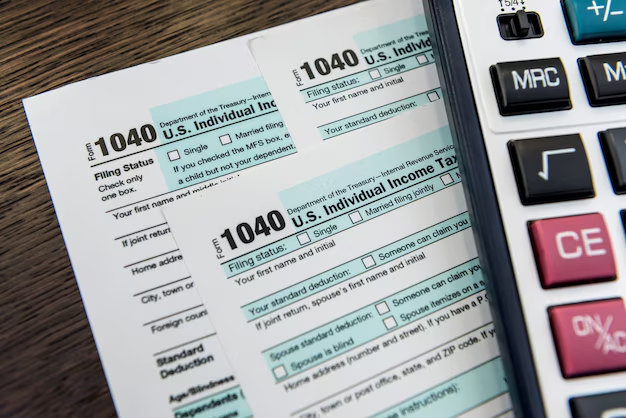Exploring the Truth: Did Trump Sign No Tax on Tips?
Understanding tax regulations can be complex, especially when it comes to niche areas like tips. If you work in industries where tips form a large part of your income, you might have heard discussions about changes to tax policies during Donald Trump's presidency. A question frequently asked is whether Trump signed a law that exempted tips from taxation. Let's dive into this topic and explore the broader implications of tips and taxation in the United States.
A Closer Look at Taxation on Tips
Before addressing the changes purportedly made during Trump's administration, it’s critical to understand how tips are generally taxed. Tips, much like wages, are considered taxable income by the Internal Revenue Service (IRS). Here’s how it works:
- Employee Responsibility: Employees must report their tip income to their employer, unless the tips received are less than $20 per month.
- Employer Responsibility: Employers are required to withhold federal income taxes, Social Security, and Medicare taxes based on reported tips, and report the tipped income on W-2 forms.
- Tax Filing: When filing annual tax returns, employees must include all earned tips, reported or unreported, as income.
Why Are Tips Taxed?
The rationale behind taxing tips is that they are considered compensation for services rendered, much like regular income. As such, they are subject to the same taxation rules that apply to regular wages and salaries. This system aims to maintain equity and fairness in taxation across different forms of income.
Did Trump Sign a Law for No Tax on Tips?
The notion that Donald Trump signed a law making tips non-taxable is a myth. During his presidency, there were no new federal laws or executive orders eliminating the tax requirement on tips. However, Trump's administration was known for discussing various tax reforms, which might have led to some confusion around tax policies and their implications.
Understanding the Source of Confusion
- Tax Cuts and Jobs Act (TCJA): Signed into law in December 2017, this act introduced several changes aimed at simplifying the tax code and reducing tax burdens. However, it did not specifically address tax exemption on tips.
- Policy Discussions: Conversations around simplifying or modifying existing tax legislation often included ideas around tip income, which may have contributed to misconceptions regarding policy changes.
How Employers and Employees Handle Tips
With tips being an integral part of the income structure for many service sector employees, it’s essential to know how both employers and employees should manage tip income.
Employee Best Practices
- Accurate Record-Keeping: Keep track of all tips received, whether cash or electronic. Use notebooks or mobile apps to log daily earnings.
- Regular Reporting: Report tips to employers promptly, ensuring accurate withholding for tax purposes.
- Understanding Tip Allocation: Be aware of how automatic gratuities from group events or services are treated, as they might be considered wages.
Employer Responsibilities
- Tip Reporting Systems: Implement systems that facilitate easy reporting and tracking of tips by employees.
- Tax Compliance: Ensure compliance with federal requirements for withholding and reporting tipped income.
- Education: Provide employees with resources and training about their responsibilities for reporting and managing tip income.
Common Misconceptions About Tip Income
There are various myths and misunderstandings about what constitutes tips and the proper way to handle them for tax purposes.
Separating Fact from Fiction
- Cash vs. Credit Card Tips: Both cash and credit card tips are taxable. The method of payment does not change tax obligations.
- Tip Pooling: Participating in tip pooling arrangements does not exempt tips from taxation. Employees must report their portion of pooled tips.
- Service Charges: A common misunderstanding is confusing optional tips with mandatory service charges. Service charges imposed by businesses are not tips and should be treated as regular wages.
Navigating Tax Changes and Staying Informed
The tax landscape continually evolves, not just during presidential administrations but as part of ongoing legislative and economic adjustments. Staying informed requires a proactive approach.
Tips for Staying Tax-Savvy
- Regular Updates: Keep abreast of any updates from the IRS regarding tip taxation and related responsibilities.
- Professional Advice: Consult with tax professionals or use trusted platforms to ensure your tax practices are compliant and optimized.
- Employer Resources: Leverage employer resources for staying updated on tip-related policies and best practices.
Key Takeaways: Managing Tips and Taxes
Here’s a concise summary to guide you in handling tips and understanding your taxation responsibilities:
- All tips are taxable: IRS policy mandates that employees report and pay taxes on all tipped income.
- No legal exemption for tips: There was no federal exemption for tips enacted during Trump's presidency.
- Accurate documentation is crucial: Both employees and employers must keep detailed records for compliance.
- Stay informed: Changes in tax legislation can impact how you manage tip income.
In summary, thinking of tips as non-taxable is a myth and a misinterpretation of federal tax laws, including during the years of the Trump presidency. While legislative discussions may occasionally touch upon different aspects of tax policy, the basics regarding how tips are currently taxed remain unchanged. Adopting sound practices for tracking and reporting tip income not only helps in staying compliant but also ensures that individuals and businesses optimize their tax strategies effectively in the face of ongoing changes.

Related Topics
- a Sales Tax Is a Type Of
- a Tax Exemption
- Am I Tax Exempt
- Are 401k Contributions Tax Deductible
- Are 529 Contributions Tax Deductible
- Are 529 Plan Contributions Tax Deductible
- Are Association Fees Tax Deductible
- Are Attorney Fees Tax Deductible
- Are Campaign Contributions Tax Deductible
- Are Charitable Donations Tax Deductible
